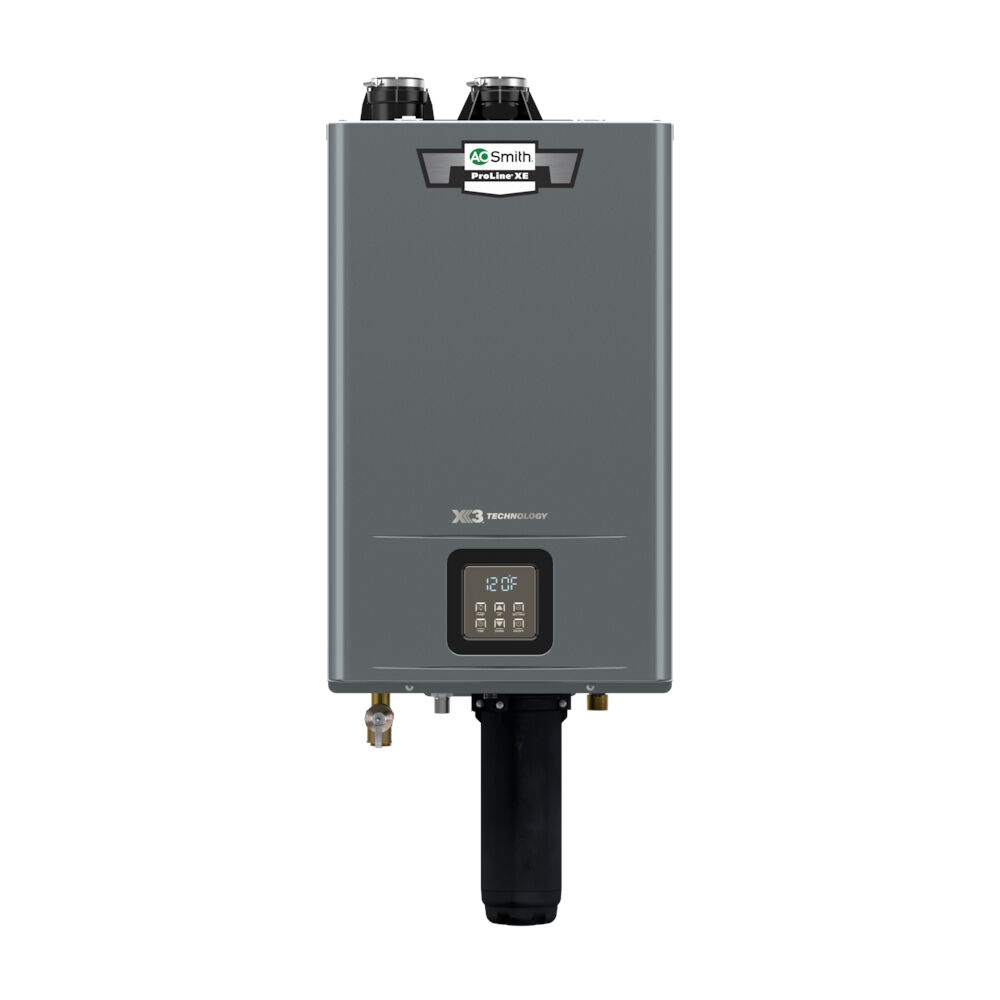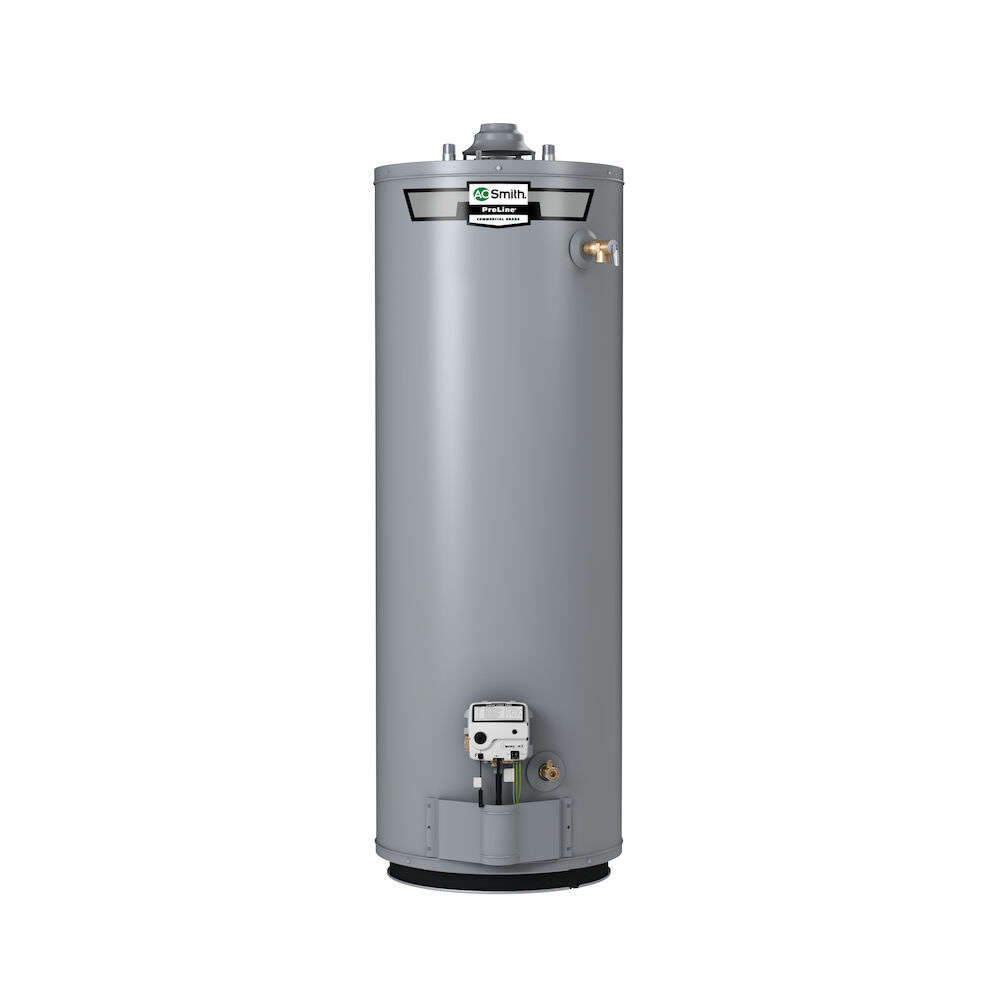)_tankless.jpg?cx=1265&cy=0&cw=468&ch=625)
Tankless Water Heaters: How Do They Work?
Table of Contents
- What Is a Tankless Water Heater?
- How Does a Tankless Water Heater Work?
- Advantages & Disadvantages of Gas and Electric Tankless Water Heaters
- Tankless Water Heaters vs. Traditional Water Heaters: Pros & Cons
- How to Choose the Right Water Heater for Your Needs
- Problems With Your Tankless Water Heater?
- Want to Upgrade Your Water Heater?
- Problems With Your Water Heater?
- Learn More About Tankless Water Heaters
For most people, heating water to use around the house has always been the job of a big, clunky appliance hidden in the depths of their basement or a dark corner of their garage. But today’s water heaters have gotten a makeover that makes them an attractive option for homeowners interested in upgrading.
In this guide, we will explore tankless water heaters in depth. We'll examine the main differences between electric and gas models, how they compare to traditional water heaters, and why it might be good for your wallet to make the switch.
What Is a Tankless Water Heater?
Tankless water heaters are stand-alone plumbing fixtures that heat water as needed instead of storing heated water in a tank. Often referred to as on-demand heaters, tankless water heaters are often chosen by homeowners concerned about space limitations and energy efficiency.
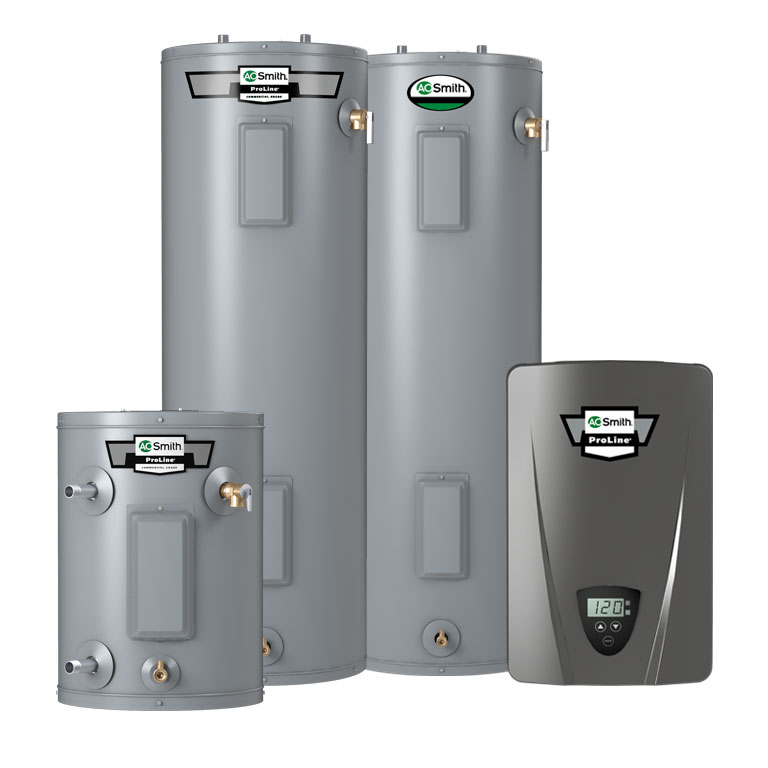
Traditional Water Heaters vs. Tankless Water Heaters
As more homeowners look to upgrade their traditional water heaters and consider a switch to tankless models, it’s important to understand the difference between the two options.
Traditional Water Heaters
Traditional water heaters contain a storage tank that stores a large amount of water—typically 20-80 gallons. The heater warms the water held in the tank and keeps it at the temperature specified by the attached thermostat.
Once you use all the water in a traditional water heater’s tank, you must wait for more water to heat up. That could result in a waiting period where you can’t shower or wash dishes until the water heater catches up.
Tankless Water Heaters
Typically, tankless water heaters cost a bit more than traditional water heaters both at the point of purchase and during installation. But for some people, the perks of a tankless heater are worth the extra expenditure.
Tankless water heaters don’t have a reservoir. Instead of holding water heated to a specific temperature, they offer on-demand heating. When you need hot water, the unit warms water from outside pipes and passes it directly through to your home’s plumbing. From there, it comes out of your taps as you shower, wash clothes, or prepare to mop the kitchen floor.
How Does a Tankless Water Heater Work?
The inner mechanisms of a tankless water heater are fascinating. Understanding how these innovative fixtures work can also help you recognize when they’re not working correctly, so you can troubleshoot on your own or contact a plumbing contractor.
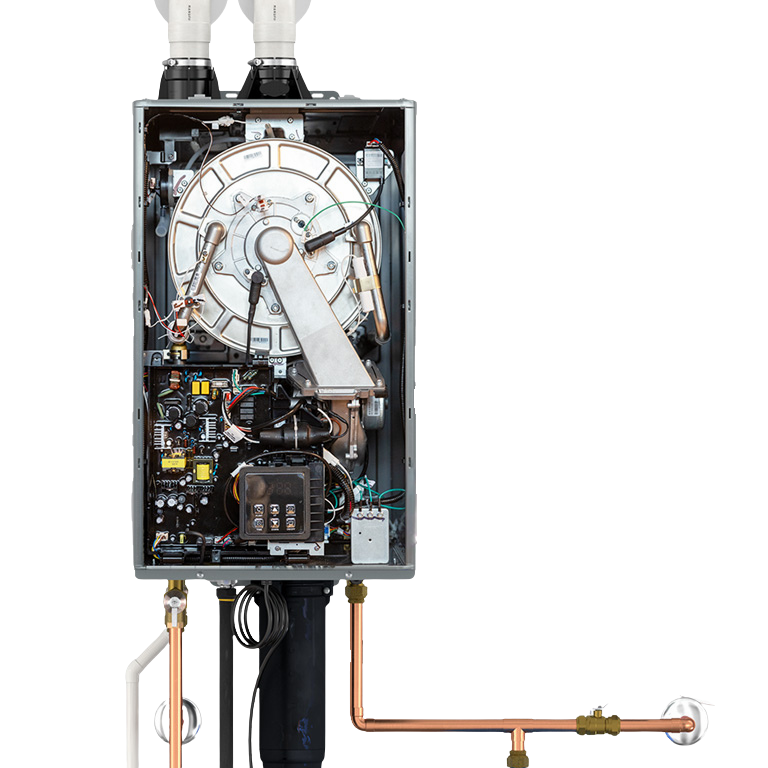
Electric Water heater
With a tankless electric water heater, the heating process begins when the internal temperature sensor registers cold water. The heater automatically activates the electrical elements responsible for warming water as it enters the chamber.
As water flows into the water heater, it passes over the heating elements, ensuring even and thorough heating. Once the water is at the correct temperature, as determined by the adjustable thermostat, it leaves the unit and flows through your home’s plumbing.
Gas Tankless Water Heater
A tankless gas water heater works similarly to an electric model but is fueled by natural gas or liquefied petroleum gas (LPG). A flow sensor activates the gas burner, which warms the heat exchanged. Water flows into the heater and around the burner where it’s warmed up to a set temperature point.
After being heated, the water leaves the tankless water heater — already nice and toasty — and flows to your sink, tub, or shower taps.
Gas-powered tankless heaters require an extra step due to ventilation needs. The combustion gasses created during the water-heating cycle leave through a sealed, dedicated vent system and are ultimately expelled outside the building.
Advantages & Disadvantages of Gas and Electric Tankless Water Heaters
If you decide to install a new tankless water heater system, you’ll still need to decide between the two versions. Sometimes, circumstances or permanent housing setup will limit you to either a gas or electric unit. But if you have a choice, this rundown of the pros and cons of electric and gas tankless water heaters should help.
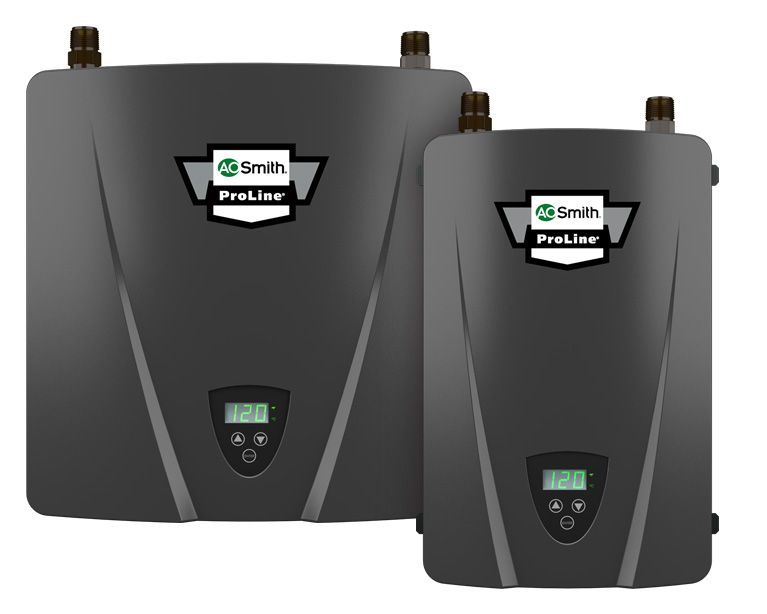
Advantages of Electric Tankless Water Heaters
When comparing electric vs. gas tankless water heaters, electric units offer several advantages.
- Energy efficiency. Electric water heaters are often more energy efficient than gas heaters. That’s due to a lack of reliance on fossil fuels and the rising availability of “clean” electricity generated by wind turbines and solar farms. Electric heaters may have a higher energy factor, too, meaning more of the electricity used is actually converted into hot water.
- Ease of installation. Electric water heaters are comparatively easier to install because they don’t require tapping into gas lines or creating a dedicated venting system. That makes installation more practical, less expensive than gas heater installations and a more viable choice for renters.
- Lower initial cost. Cost wise, electric water heaters generally trump gas heaters in terms of upfront costs. This can make them a more budget-friendly option for homeowners trying to limit home upkeep or renovation costs.
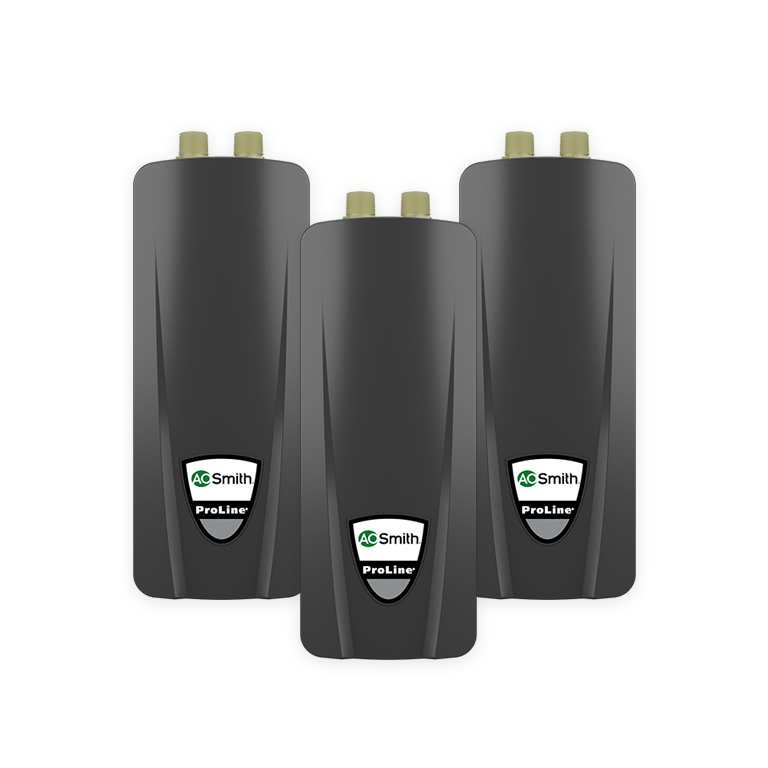
Disadvantages of Electric Tankless Water Heaters
While electric tankless water heaters offer several key perks, there are also a few disadvantages worth considering before you sign on the dotted line.
- Higher operating costs. Electric tankless water heaters are more cost-effective initially, but once installation is complete, operating expenses can be higher than if you chose a gas heater. Electricity tends to be more expensive than gas in general, which translates to increased utility bills.
- Slower heating. Electric heaters have slower recovery times than gas heaters. It may take longer for water to heat up when you use an electric heater than it would if you relied on gas.
- Dependence on electricity. Without electricity, your electric tankless water heater simply won’t run. Any interruption in service, such as an outage due to a storm or downed power line, will leave you without hot water until power is restored.
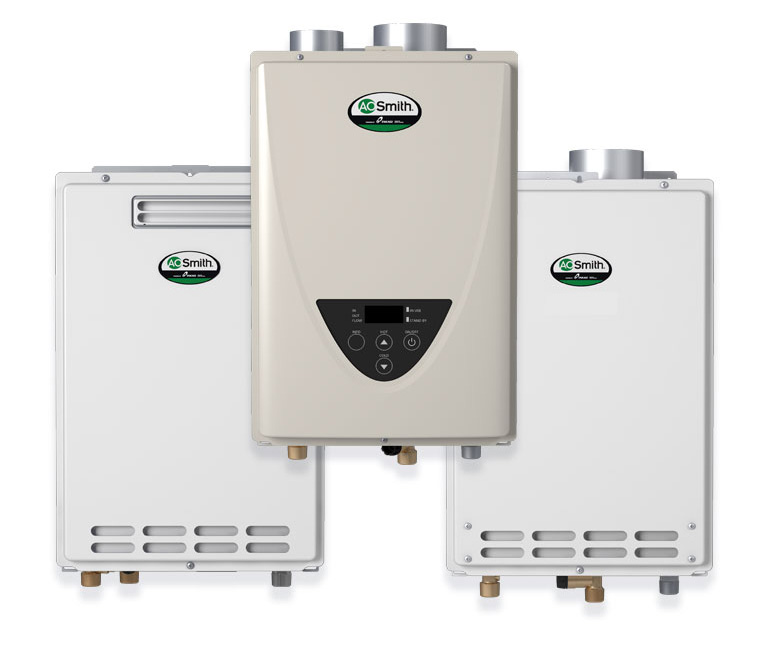
Advantages of Gas Tankless Water Heaters
Now that we’ve discussed the pros and cons of electric tankless water heaters, let’s examine what you’ll get if you choose a gas tankless heater.
- Lower operating costs. Natural gas is typically cheaper than electricity, making it more affordable to run a gas water heater than it would be to operate an electric heater. Of course, costs may change depending on your geographic area and service provider, so it’s always good to compare utility bills as part of your research.
- Faster heating. Gas heaters often have a faster recovery team. If you have a busy household where hot water is in high demand, gas heaters may be better equipped to meet your needs.
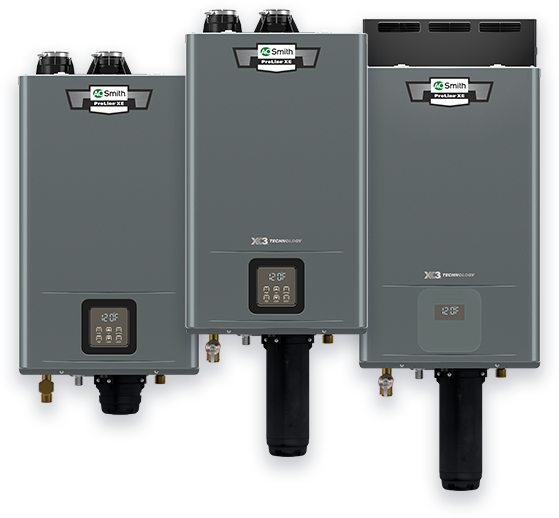
Disadvantages of Gas Tankless Water Heaters
There are some downsides to gas tankless water heaters, too.
- Higher initial cost. Gas heaters are often more expensive to install compared to the less intensive installation process of an electric tankless water heater. The installation for gas units requires technicians to manage gas lines, build dedicated ventilation systems, and ensure proper safety procedures for gas and propane.
- Environmental impact. Machines powered by natural gas generate carbon emissions that can hurt the environment. If you’re particularly concerned about sustainability or prefer eco-friendly measures whenever possible, you might be less comfortable with a gas unit than an electric one. This is especially true if you already live in an area where clean electricity is abundant.
- Space requirements. Though tankless water heaters generally require less space than traditional water heaters, gas tankless models may need more than electric tankless models. They also require different positioning to accommodate ventilation and maintain access to gas lines.
Tankless Water Heaters vs. Traditional Water Heaters: Pros & Cons
Making the jump from the traditional water heater you’ve always known to a more modern alternative may feel daunting at first. Looking at the two options side by side may help you envision how a tankless water heater would improve daily living and what you might be giving up if you give your traditional heater the boot.
Advantages of Tankless Water Heaters
The benefits of tankless water heaters include:
- Compact design. Tankless water heaters have a slimmed-down design that ditches bulky water tanks and uses on-demand heating instead. With no storage requirements, your unit needs a much smaller footprint. Traditional heaters take up an entire corner of the garage or basement, but tankless units can fit in a closet.
- Efficiency. Tankless heaters are energy efficient, heating only the water you need at that time rather than continuously heating a holding tank of water that could be used today, tomorrow, or later in the week. Think of it as flipping on a light when needed rather than keeping all the lights in the house on “just in case.”
- Longer life expectancy. On average, tankless water heaters last considerably longer than traditional water heaters. Tankless heaters don’t run as much, equaling less wear and tear.
Disadvantages of Tankless Water Heaters
What is the downside of a tankless water heater compared to traditional water heaters? By now, you may think tankless water heaters are the next step in homeownership. After all, they’re energy-efficient, don’t take up too much space, and are relatively affordable to install. But there are a few items on the cons list you should take a peek at before moving forward.
- Power limitations. Electric water heaters require a large, dedicated circuit to have enough power to run the unit. There are also concerns about power outages — if your neighborhood loses power, you lose the ability to heat water, too. Gas heaters only work if you can connect to a natural gas source.
- Lower output. Tankless water heaters don’t have a reservoir that holds water just in case you need it. Water is heated on demand, and it could take some time to have enough hot water to run multiple appliances or clean multiple people at the same time. For instance, you might not be able to shower and use the washing machine without stretching a tankless water heater to its limitations.
- Higher initial cost. Tankless water heaters may be more cost-effective in the long run, but they’re more affordable to install upfront.
How to Choose the Right Water Heater for Your Needs
Even a solid how-to guide discussing the pros and cons of traditional and tankless water heaters may not give you everything you need to reach a purchasing decision. Luckily, you can use our water heater selector tool to make that decision easier. Just answer some questions about your household water usage, and the tool will let you know what size heater you need.
Need more information about tankless water heaters and assistance selecting the unit that’s perfect for you? Reach out to an A.O. Smith rep today.
Problems With Your Tankless Water Heater?
Are you having problems with your tankless water heater and find yourself unsure how to proceed? Check out our media library for tons of resources, including spec sheets, manuals, technical support videos, product images and other helpful assets you can use for DIY fixes.
If you’re not comfortable with the recommended troubleshooting processes or just prefer to go straight to a professional, reach out to an A.O. Smith rep.
Want to Upgrade Your Water Heater?
Whether you’re looking to increase your capacity as your family grows or you’re interested in a more efficient and cost-effective water heater, an upgrade could be the best way to take the next step toward your goal.
All A.O. Smith water heaters are professionally installed by one of our approved independent contractors. To find an authorized tech in your area, check out our provider search tool.
Problems With Your Water Heater?
If you have problems with your water heater, check out our support resources. If you don’t find the answers you need in this vast library of replacement recommendations, maintenance and troubleshooting guides, and other literature, please reach out to one of our helpful A.O. Smith reps.
Learn More About Tankless Water Heaters
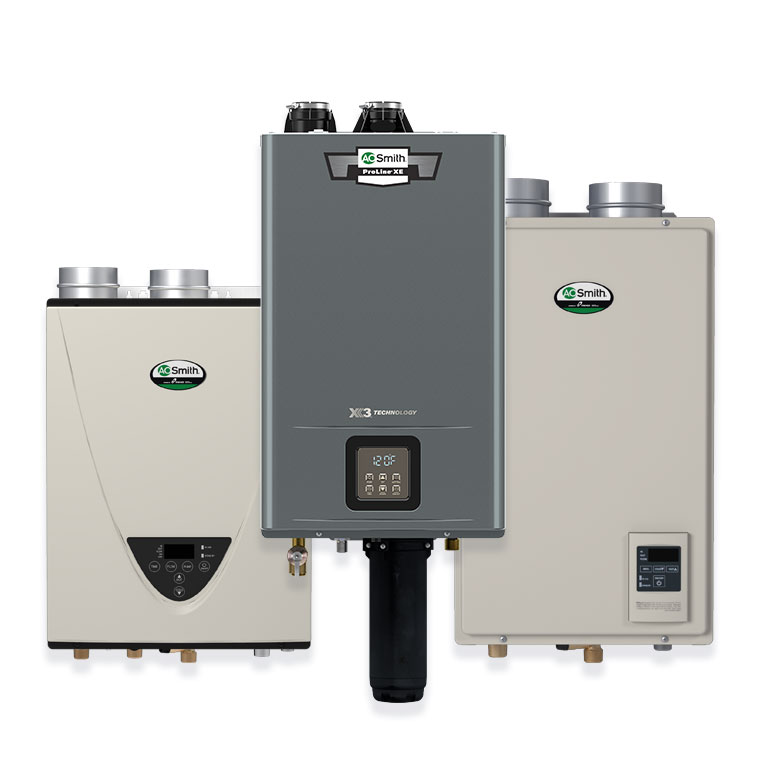
Continue your research on tankless water heaters with these guides from A.O. Smith.
Gas Tankless
Gas tankless water heaters are on-demand heaters that rely on natural gas or propane to heat water as you need it. Find out what customers are saying about tankless gas water heaters, read through core benefits of these units and see how you can buy one today.
Electric Tankless
Electric tankless water heaters tap into the local electricity grid, just like your refrigerator or washing machine. Water is heated on demand, giving you everything you need for a hot morning shower or soothing evening bath. Our resource on electric tankless heaters contains tons of information, so you can learn why these units are increasingly popular.
